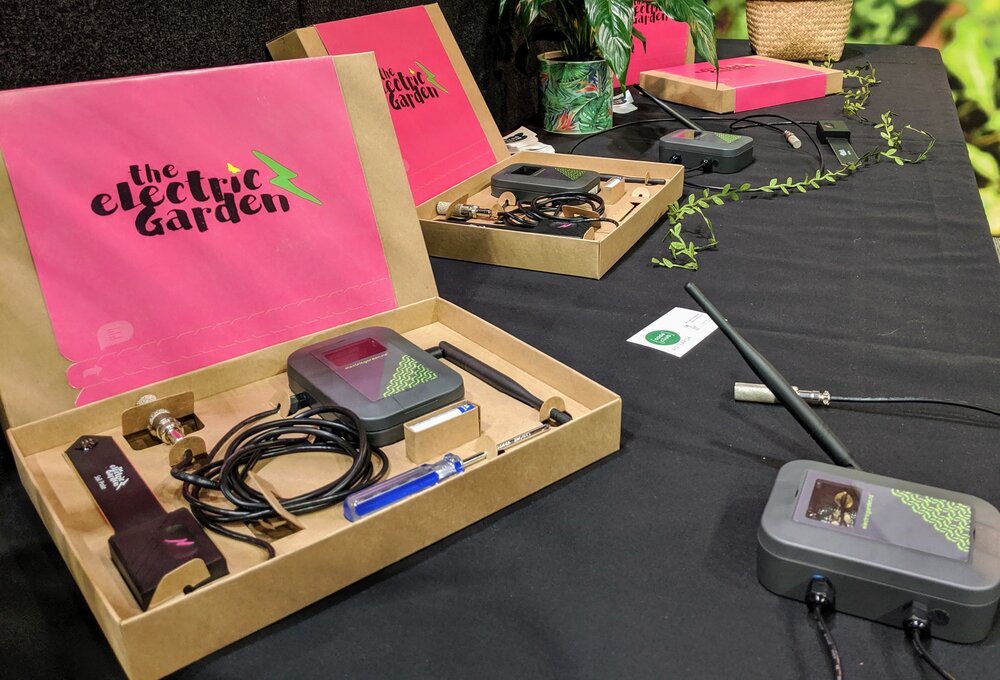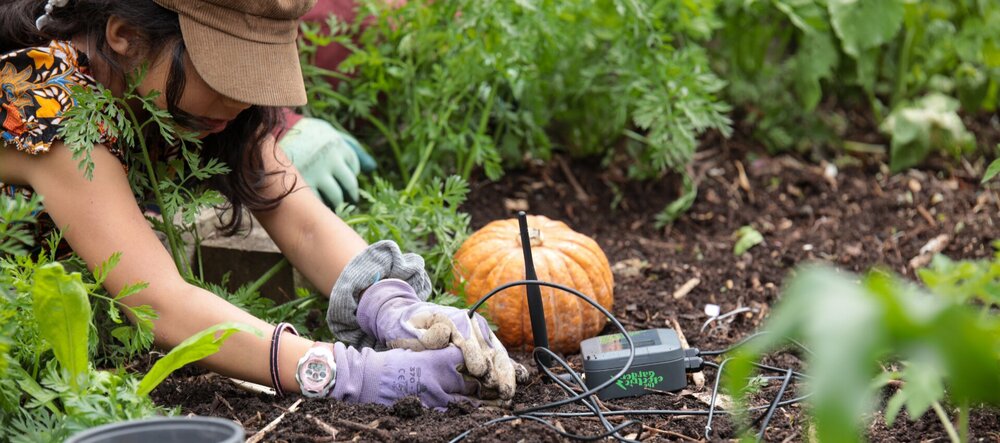Make learning engaging with the Electric Garden

Have you heard about Electric Garden yet? It’s an innovative programme for schools and Kāhui Ako where students learn computer science/digital technologies concepts through a real-life authentic context of gardening. It’s a great way to make learning authentic and real, using a context that engages and teaches life skills.
This innovative programme for gives learners in schools, kura, marae and community groups life skills by helping them to grow their own food, and at the same time, learn basic computer science concepts. We think this is awesome!
The way Electric Garden works is that a school gets sent a kit equipped with sensors that are linked up as Internet of Things (IoT) devices. All that’s required is for batteries to be put in the sensors, and the sensors to be placed in the garden. Once set up, these IoT sensors constantly send data to the Electric Garden online platform so students can learn how the data can influence how they care for and nurture their garden.
As well as being designed to capture data from the garden, this platform includes resources and lesson plans for teachers on a whole range of issues that help students learn important concepts and skills such as:
- How to take and upload pictures of plants as they grow to create an ongoing journal of progress of their garden
- Scientific skills like observing changes in plants based on changes to moisture or light.
- Fundamental concepts related to the nature of science.
- Graphing skills – the system can export graphs for maths programme (these are also basic DDDO (Designing and Developing Digital Outcomes) concepts critical to the new Digital Technologies Curriculum
- Logging manual observations of the local environment in and around the garden
- Developing data literacy – how to work with real world data using a range of tools – Excel, Google Sheets and Python
- Basics of computer programming using Scratch and Python – fun!
- Basic computer science concepts such as inputs, outputs and how component parts of computers work, including sensors

We are keen to support schools to share their gardening data between different regions throughout New Zealand; we see this as a great way to stimulate connected learning that broadens students’ horizons by comparing their gardening data with those in other places. One of the great things about Electric Garden is that teachers don’t have to be tech savvy to give it a go – what a genius idea!

The organisation behind Electric Garden is Digital Future Aotearoa, a charity set up with the mission of enabling all New Zealanders with digital skills, regardless of their background. We are proud to be the PLD provider for Digital Future Aotearoa and fully support this worthy mission, not only because it is such a wonderful idea, but also because it ties in directly with something else we’re passionate about… the United Nations Sustainable Development Goal #4 – For all people to have equal access to quality education.
Our approach at Learning Architects toward the Digital Technologies and Hangarau Matihiko (DTHM) curriculum implementation is to help teachers to incorporate these new strands into their existing programmes, creating clear links that contextualise the new skills and concepts into existing class and school programmes. This makes the learning easy for teachers to implement, and highly personalised for students. Electric Garden provides a practical, non-threatening and fun way to do this – learn more here…
Keen to give it a go? Get in touch to find out how we can support your school to use this amazing programme.

Facebook Comments